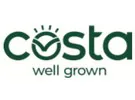 Costa Group CEO Harry Debney noted the company had faced significant challenges in CY2019, relating to drought and weather events in the second half of the year.
Costa Group CEO Harry Debney noted the company had faced significant challenges in CY2019, relating to drought and weather events in the second half of the year.
“The second half of the year was particularly challenging, which impacted fruit sizing and yield in our late season citrus, berry and avocado crops. We also had to take action to remove part of our berry crop at Corindi (New South Wales) due to a lack of rain in order to conserve our perennial blueberry footprint.
Although our key berry and tomato growing locations at Corindi and Guyra have received heavy rainfall over January and into February, improving our overall and ongoing water security across the business will continue to be a key priority in recognition of the risks associated with weather and climate cycles.
The company is committed to making our operations sustainable so they can both better withstand environmental risk including unforeseen and extreme weather events, and maximise opportunities with respect to improving our economic efficiency and profitability over the medium to long term,” said Mr Debney.
Produce segment
• Drought impact
Drought conditions reduced fruit sizing and yield in the late season citrus, berry and avocado crops over the second half of the year. A higher water expense was incurred with increased usage and spot pricing across the citrus farms, and alternative water sourcing arrangements were deployed at Guyra (tomatoes) and Corindi (berries).
• Market
There continues to be strong reception for citrus and table grape exports into core export regions. Over 70% of the citrus crop was exported for the year, with Japan continuing to be the priority market. There was earlier blueberry industry peak volume over the late August/September period with resultant pricing pressure, however this eased by year end.
Mushroom retail channel demand remained subdued for most of 2019, resulting in an unfavourable sales mix and low wholesale market pricing. The closure of old, high cost mushroom growing facilities in Queensland and Tasmania was completed in November/December retiring circa 65 tonne per week of production ahead of the new Monarto volume coming on line.
Tomato pricing was solid across both truss and snacking lines. Revenue growth was underpinned by consistent quality and production growth across all key segments. Reduced avocado pricing was due to strong industry supply volumes.
• One off issues
The raspberry crumble issue was more costly than initially anticipated with steps having been taken to limit future impact. Citrus fruit fly costs were contained against the initial estimate of $4m.
For the full financial report, please click here.
For more information:
Michael Toby
Costa
Tel: +61 3 8363 9071
